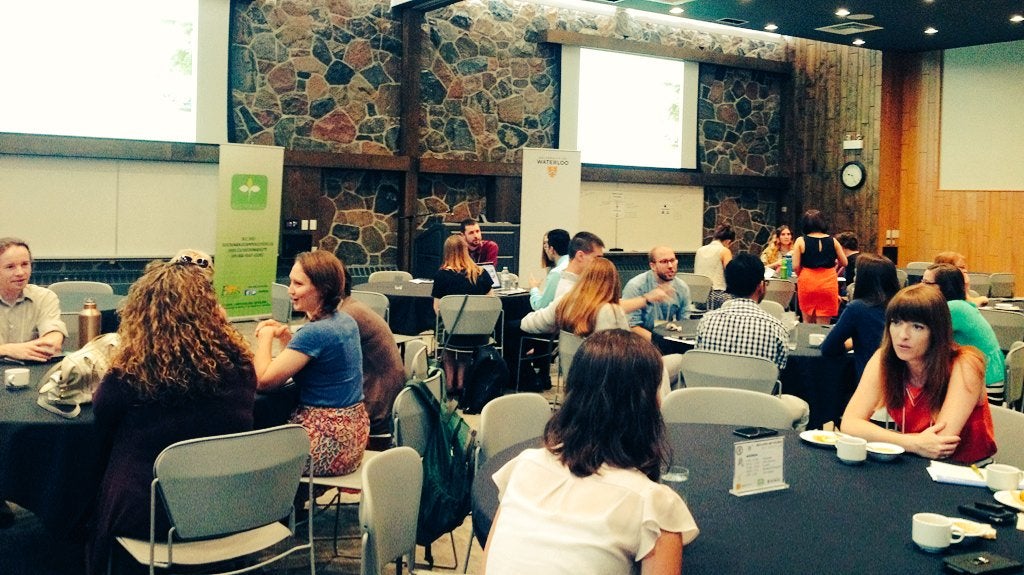What do Brexit, community gardens, and climate change have in common? Attendees at Waterloo’s third annual Eco-Summit learned about the global, local, and University networks that are building a sustainable future, as well as the tensions within and between those networks.
Co-hosted by the Sustainability Office and Sustainable Campus Initiative, the summit brought together almost 70 students, staff, faculty, and community partners throughout the day to celebrate the momentum of campus sustainability networks and inspire additional action.

The summit also featured an update on Waterloo’s own progress and case studies from the Waterloo Institute for Sustainable Energy, UW Campus Market Gardens, and St. Paul’s. Attendees broke into smaller groups in the afternoon to provide input on next steps that Waterloo can take to advance campus sustainability.

Ian Rowlands, Professor in the School of Environment, Resources, and Sustainability and Interim Associate Vice-President International, provided closing comments on recent sustainability momentum in Canada and around the world.
The summit also acknowledged champions in several departments across campus that received bronze certification as part of the Green Office pilot program, including the Library, CTE, Propel Centre for Population Health Impact, and the Arts, Environment, and Engineering Dean’s Offices.
